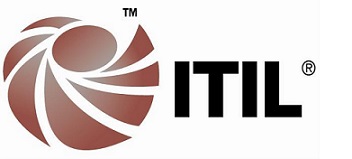
ITIL
ITIL is a widely accepted approach to IT Service Management (ITSM), which has been adopted by individuals and organizations across the world. ITIL provides a cohesive set of best practice, drawn from the public and private sectors internationally. Because ITSM is driven both by technology and the huge range of organizational environments in which it operates, it is constantly evolving.
ITIL Foundation
The Foundation level is the entry level certification and offers you a general awareness of the key elements, concepts and terminology used in the ITIL® service lifecycle, including the links between lifecycle stages, the processes used and their contribution to service management practices.
This qualification is primarily aimed at:
- Those who require a basic understanding of the ITIL framework
- Those who need understanding of how ITIL can be used to enhance IT service management within an organization
- IT professionals or others working within an organization that has adopted and adapted ITIL and who need to be informed about, or contribute to, ongoing service improvement
However, the ITIL Foundation level certification is open to and can benefit anyone who has an interest in the subject.
This training course covers:
Service management as a practice
- The ITIL service lifecycle
- Generic concepts and definitions
- Key principles and models
- Selected processes
- Selected functions
- Selected roles
- Technology and architecture
- Competence and training
ITIL Intermediate
The Intermediate level certification is the next stage, following Foundation, in the ITIL® scheme. It has a modular structure with each module providing a different focus on IT Service Management. You can take as few or as many Intermediate qualifications as you need. The Intermediate modules go into more detail than the Foundation level, and provide an industry-recognized certification.
The modules within the ITIL Intermediate level are divided into two categories – Service Lifecycle and Service Capability.
Some may wish to concentrate on one set of modules, but you can choose to select modules from both the Service Lifecycle and Service Capability streams in order to combine management and technical knowledge.
It is recommended that you have prior exposure to basic concepts in IT and at least two years’ professional experience working in IT Service Management before undertaking any of the ITIL Intermediary modules.
In order to complete the Intermediate level, you need to attend training run by an Accredited Training Organizations. You cannot self-study and then take the examinations.
The Service Lifecycle modules are:
- Service Strategy (SS)
- Service Design (SD)
- Service Transition (ST)
- Service Operation (SO)
- Continual Service Improvement (CSI)
The Service Capability modules are:
- Operational Support and Analysis (OSA)
- Planning, Protection and Optimization (PPO)
- Release, Control and Validation (RCV)
- Service Offerings and Agreements (SOA)